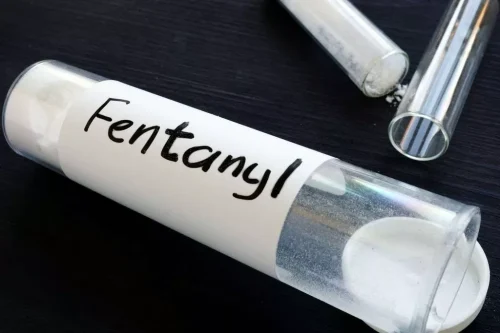
Learned tolerance, also called behaviorally augmented tolerance, is a classic sign of functional alcoholism. However, not all people with a learned tolerance are high-functioning alcoholics. This blog discusses what alcohol tolerance is, its causes, and how to reduce your tolerance level. By understanding these considerations, you can help ensure that your relationship with alcohol remains healthy.

Scientists Just Debunked Decades of Research About Alcohol Consumption
Glutamate/nitric oxide, γ-aminobutyric acid, opioids, serotonin, dopamine, adenosine, cannabinoids, norepinephrine, vasopressin, neuropeptide Y, neurosteroids, and protein kinase C all modulate rapid tolerance. Most studies have evaluated the ability of pharmacological manipulations to block the development of rapid tolerance, but only a few studies have assessed their ability to reverse already established tolerance. Neglected increasing alcohol tolerance areas of study include the incorporation of a key element of tolerance that involves opponent process-like neuroadaptations. We conclude that studies of the neurobiology of alcohol tolerance should be revisited with modern conceptualizations of addiction and modern neurobiological tools. This may contribute to our understanding of AUD and uncover potential targets that can attenuate hazardous alcohol drinking.

Alcohol Seen as Bad for One’s Health; Most Say Drinking Less Is Better
Nearly one in 10 U.S. adults consume cannabis at least 10 times a month, with the highest use found among lower-income and less educated individuals. Meanwhile, a study published last month showed that deaths related to excessive drinking are rising in the United States, especially among women. In this scenario you may need to drink five pints to get the same initial “buzz” you got from four pints. But it can also develop with regular and continued alcohol use in social drinkers. That is why alcohol detox and alcohol withdrawal treatment is administered by medical professionals.
- Even if you only have mild symptoms of alcohol intolerance, you should avoid alcohol.
- Furthermore, as alcohol is a depressant, consuming alcohol when tired will, in general, simply increase one’s level of tiredness while magnifying alcohol’s traditional effects.
- Or, they could create additive side effects such as heightened drowsiness or an increased risk of gastrointestinal bleeding, says Moore.
- But when we drink in a new environment – such as going to the pub for the first time in six months – the compensatory response is not activated, making us more prone to experiencing alcohol’s effects.
- High levels of acetaldehyde are what cause the unpleasant symptoms of alcohol intolerance.
- Alcohol intolerance is a real condition, but it can sometimes be confused with other related conditions, such as allergies or drug interactions with alcohol.
Just how bad is alcohol? Eight experts weigh in on the risks and supposed benefits of drinking
- She often brings her own nonalcoholic beer or wine to social gatherings, Laing said, and most bartenders are happy to make a mocktail.
- After this time, people who couldn’t previously get drunk after 5-6 drinks feel alcoholic effects after one drink.
- “I would consider this a starting point to truly define what the risk is of developing head and neck cancer from cannabis use.
- “[The researchers] did not have information about tobacco and alcohol dosages, so we do not know if the cannabis group smoked more,” Sunwoo told Healthline.
The transmission of nerve impulses characterizes the unique communication system of the brain. When nerves are unable to receive signals, the brain cannot share the consequences of intoxication with the body. Meanwhile, people with high tolerance are more resistant to alcohol’s effects. When alcohol-dependent people reduce their intake, they experience intense cravings and withdrawal symptoms. If you have acute tolerance, you appear more intoxicated when you start drinking. Later during the drinking session, you’ll exhibit fewer signs of intoxication despite having the same BAC as when you started drinking.

If someone requires support with their alcohol use, they can speak with a doctor to discuss the recommended guidelines for alcohol intake. Some studies found that sons of fathers with AUD were less impaired by alcohol than the sons of fathers who did not have AUD. AddictionResource aims to present the most accurate, trustworthy, and up-to-date medical content to our readers. Our team does their best for our readers to help them stay informed about vital healthcare decisions. Calls to our general hotline may be answered by private treatment providers. We may be paid a fee for marketing or advertising by organizations that can assist with treating people with substance use disorders.
- According to the 2022 National Survey on Drug Use and Health, administered by the U.S. federal government, about 20% of adults 60 to 64 and about 10% of those 65 and older say they binge drink.
- Many people struggle to achieve lasting recovery from alcohol dependence, highlighting the need to individualize patient treatment based on their life history, genes, coexisting illnesses, and other issues.
- “It can exacerbate depression, increase blood pressure, and lead to cardiac arrhythmias,” Koob says.
- As a result, you’ll feel the intoxicating effects even from lower amounts of alcohol.
One email. One story. Every week. Sign up for the VICE newsletter.
2Why does your alcohol tolerance change over time?
- Several variables go into the amount you can drink before feeling the effects, including your size, weight, sex, and age.
- Questions surrounding whether smoking cannabis is more harmful than ingesting it remain unanswered.
- These changes in tolerance reflect the brain’s desensitisation (increased tolerance) and resensitisation (reduced tolerance) to alcohol at the cellular level.
- Studies have also found that metabolic tolerance can lead to the ineffectiveness of some medications in chronic drinkers and even in people recovering from alcohol use disorder (AUD).